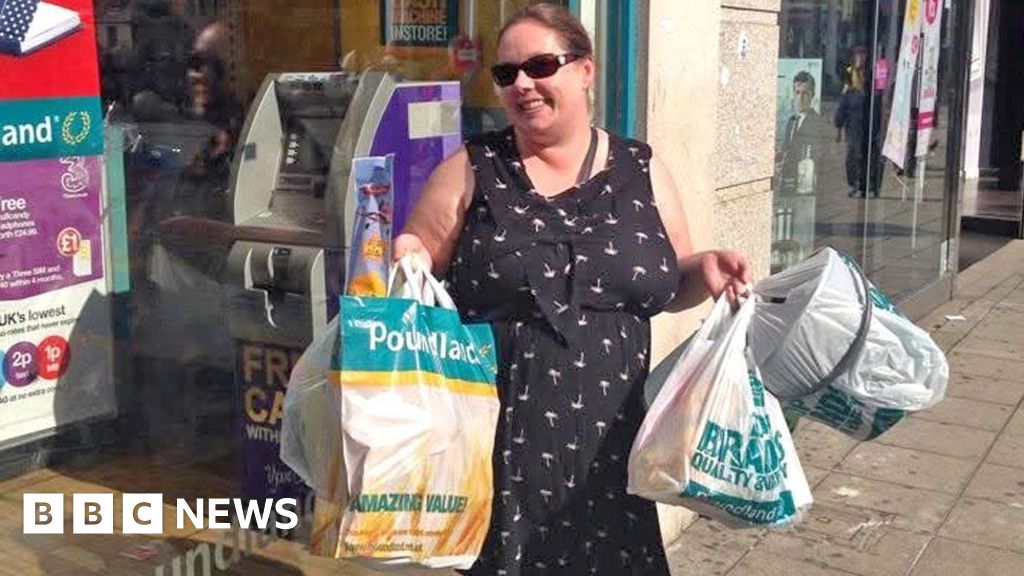ARTICLE AD BOX
 Image source, Getty Images
Image source, Getty Images
A legal bid to protect tenants from so called "ghost landlords" has failed, in a move that could have significant implications for people looking to claim their rent back if they live in bad conditions.
In a landmark ruling the Supreme Court stated that a landlord is the person a tenant signs their contract with, and not the property's owner
Housing campaigners say the ruling will be a "blueprint" for landlords to avoid taking responsibility for properties.
But the National Residential Landlord's Association (NRLA) said it gives much needed clarity for those worried they could be responsible if secondary companies let out their home in poor conditions.
Those representing tenants and landlords say there has been an increase in a practice known as rent-to-rent which allows a company to rent a whole home from a landlord, and then let rooms individually for profit.
Critics say this often leaves properties in poor condition and tenants with nowhere to turn and some owners are using such companies to avoid legal repercussions.
But some property owners say they too are being deceived by the same rogue operators and need the protection this ruling has given them.
Chain of tenancies
The court considered whether rent repayment orders for housing offences should be made against immediate landlords, or the "supreme landlord" when there is a chain of tenancies involved.
It ruled that rent repayment orders can only be made against the immediate landlord.
The court said that rogue landlords can face other sanctions such as fines and banning orders and it is up to parliament to decide whether these are sufficient.
Ben Beadle, chief executive of the NRLA, which intervened in the case in support of responsible landlords, said the case was never about whether legal obligations should be met, but about who should be held responsible in rent-to-rent cases.
He said the ruling makes clear that rent-to-rent companies acting as a landlord need to make sure that relevant legal requirements are met.
"It is simply not right that such companies can take money from people without any responsibility for the property they are running," he said.
'Inhuman conditions'
But rental campaigners are worried this ruling puts tenants at risk.
"This decision creates a blueprint for property owners who want to maximise their profit," said Alasdair Mcclenahan from the not-for-profit organisation Justice For Tenants.
"Cram as many tenants as can fit into inhuman conditions and extract extra rent from desperate humans who need a place to call home.
"With this Supreme Court ruling, rogue landlords can sidestep the law and tar the reputation of all landlords."
Rent-to-rent is not illegal, and those who promote it say it brings down rents by giving tenants the option of renting single rooms rather than whole homes.
A tribunal ruled that Jess should get her rent back, but she is yet to receive any money
However, some renters have been caught out when rent-to-rent is done badly because it's not clear who is responsible for repairs.
Jess rented a room in a flat in London and found it in a "general state of disrepair".
"There were mice in the kitchen and animal footprints on the beds when we first moved in," Jess told the BBC in January.
She says it was not just unclean, it was dangerous too.
"The shared bathroom was giving off electric shocks around the shower and we didn't have a fire door either."
Jess also discovered the flat, because it was shared by five or more individual tenants, should have had a House of Multiple Occupancy (HMO) licence in place. But it didn't.
After moving out of the property two years ago, she and her housemates came together to try to get their rent back at a tribunal.
"We had no idea who to pin it down to, it was like chasing a ghost," she says of her landlord. "They are not physically there."
Jess and four of her old flatmates applied for a Rent Repayment Order and the tribunal ruled in their favour. But it was complicated - with multiple parties named as being liable.
The owner of the property told us she doesn't manage the flat where Jess lived and is appealing against the basis for the tribunal's finding. The person who Jess dealt with as her landlord didn't respond to a request for a comment.
Housing campaigners and landlords will now be looking to the government and the upcoming Renters Reform Bill which is going through parliament to see whether this issue will be part of the new legislation.
"We hope that this can be a moment for policy makers to recognise the current loophole, and close it down by making property owners liable for criminality," said John-Luke Bolton from the charity Safer Renting, one of the parties that made a case at the Supreme Court.

 2 years ago
36
2 years ago
36








 English (US) ·
English (US) ·